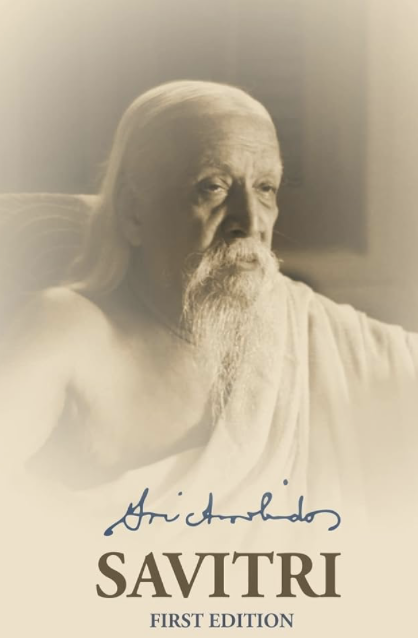Savitri, written by Sri Aurobindo, is widely regarded as one of the most profound spiritual epics of modern times. It is not only a literary masterpiece but also a guide for inner transformation, offering deep insights into the human soul and its journey towards the Divine.
The poem tells the story of Savitri and Satyavan, drawn from the ancient Indian epic, the Mahabharata. At first glance, it is a tale of love, courage, and sacrifice. Yet beneath the surface, Savitri explores the eternal struggle between light and darkness, life and death, and the human and the divine consciousness. Through her unwavering love and determination, Savitri transcends fate itself, symbolising the power of spiritual awakening and the victory of the soul over material limitations.
Key aspects of Savitri include:
- Integral Yoga in Action: The poem illustrates Sri Aurobindo’s philosophy of Integral Yoga, showing how human consciousness can be transformed through love, will, and spiritual aspiration.
- Spiritual Symbolism: Every character, event, and natural element in Savitri carries profound symbolic meaning, offering guidance to seekers on the path of self-realisation.
- A Call to Transformation: Savitri is more than a story; it is a manual for the evolution of consciousness, inspiring readers to rise above limitation, fear, and ignorance.
Sri Aurobindo spent over thirty years composing Savitri, blending poetry, philosophy, and spiritual insight into a work of unparalleled depth. Its verses encourage readers to awaken the inner light, cultivate higher awareness, and realise the divine potential within.
At the Sri Aurobindo Trust, we are committed to helping individuals explore Savitri and its teachings. Through study circles, events, and publications, the Trust provides guidance for understanding the epic’s wisdom and applying it in daily life.
Savitri is a timeless journey into the heart of existence, offering inspiration, strength, and a vision of human life transformed by the Divine.

